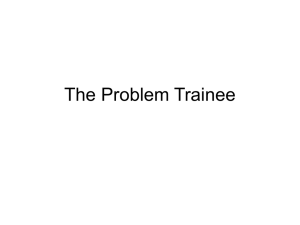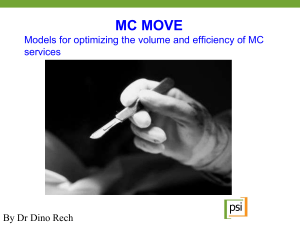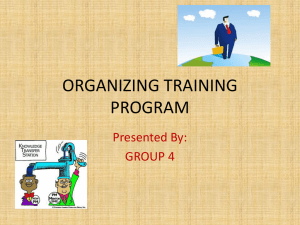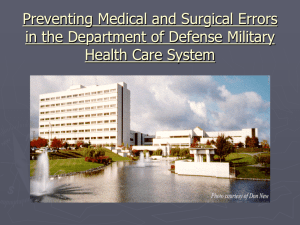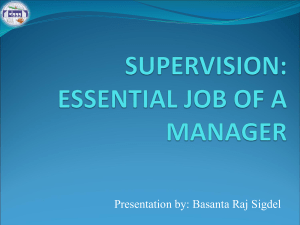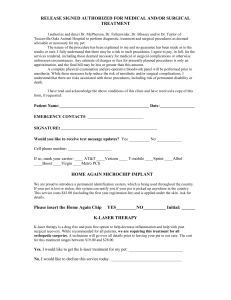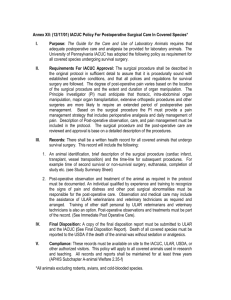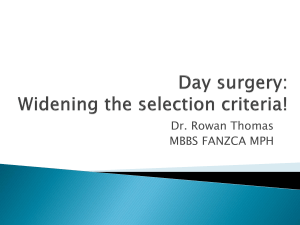Cardiothoracic Surgery Supervisor`s Report
advertisement
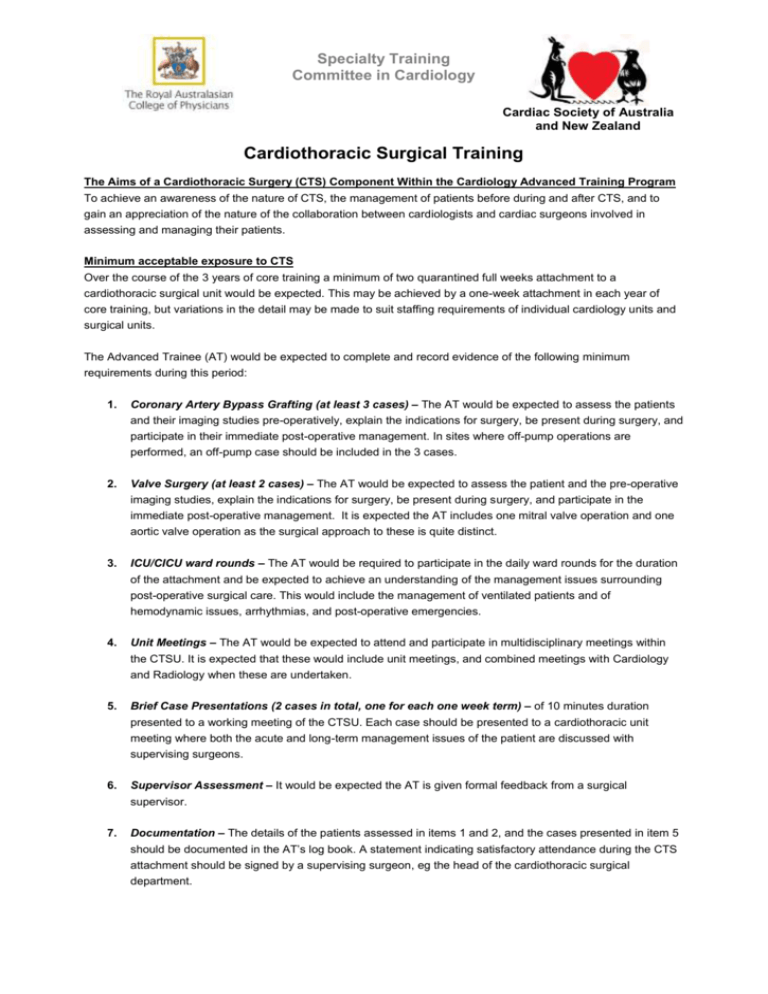
Specialty Training Committee in Cardiology Cardiac Society of Australia and New Zealand Cardiothoracic Surgical Training The Aims of a Cardiothoracic Surgery (CTS) Component Within the Cardiology Advanced Training Program To achieve an awareness of the nature of CTS, the management of patients before during and after CTS, and to gain an appreciation of the nature of the collaboration between cardiologists and cardiac surgeons involved in assessing and managing their patients. Minimum acceptable exposure to CTS Over the course of the 3 years of core training a minimum of two quarantined full weeks attachment to a cardiothoracic surgical unit would be expected. This may be achieved by a one-week attachment in each year of core training, but variations in the detail may be made to suit staffing requirements of individual cardiology units and surgical units. The Advanced Trainee (AT) would be expected to complete and record evidence of the following minimum requirements during this period: 1. Coronary Artery Bypass Grafting (at least 3 cases) – The AT would be expected to assess the patients and their imaging studies pre-operatively, explain the indications for surgery, be present during surgery, and participate in their immediate post-operative management. In sites where off-pump operations are performed, an off-pump case should be included in the 3 cases. 2. Valve Surgery (at least 2 cases) – The AT would be expected to assess the patient and the pre-operative imaging studies, explain the indications for surgery, be present during surgery, and participate in the immediate post-operative management. It is expected the AT includes one mitral valve operation and one aortic valve operation as the surgical approach to these is quite distinct. 3. ICU/CICU ward rounds – The AT would be required to participate in the daily ward rounds for the duration of the attachment and be expected to achieve an understanding of the management issues surrounding post-operative surgical care. This would include the management of ventilated patients and of hemodynamic issues, arrhythmias, and post-operative emergencies. 4. Unit Meetings – The AT would be expected to attend and participate in multidisciplinary meetings within the CTSU. It is expected that these would include unit meetings, and combined meetings with Cardiology and Radiology when these are undertaken. 5. Brief Case Presentations (2 cases in total, one for each one week term) – of 10 minutes duration presented to a working meeting of the CTSU. Each case should be presented to a cardiothoracic unit meeting where both the acute and long-term management issues of the patient are discussed with supervising surgeons. 6. Supervisor Assessment – It would be expected the AT is given formal feedback from a surgical supervisor. 7. Documentation – The details of the patients assessed in items 1 and 2, and the cases presented in item 5 should be documented in the AT’s log book. A statement indicating satisfactory attendance during the CTS attachment should be signed by a supervising surgeon, eg the head of the cardiothoracic surgical department. Specialty Training Committee in Cardiology Cardiac Society of Australia and New Zealand CARDIOTHORACIC SURGERY SUPERVISOR’S REPORT Adult Medicine Division TRAINEE DETAILS AND TRAINING POSITION Full Name of Trainee Report covers period From To Date (dd/mm/yy) Date (dd/mm/yy) Training position Year of advanced training SURGICAL SUPERVISOR DETAILS Full Name of Supervisor Qualifications Department Hospital Phone (W) Fax (W) E-mail CLINICAL SUPERVISOR DETAILS As nominated on your annual application Full Name of Supervisor Department Hospital RACP 2 SRCST (AM) Surgical Log Book – To be completed by trainee Patient Name/Unit Number RACP Date Procedure Indication 3 Management issues SRCST (AM) Comments Case Presentation – To be completed by trainee Case 1- Case Notes Name/ Unit No Procedure Case 2- Case Notes Name/ Unit No Procedure RACP 4 SRCST (AM) SURGICAL SUPERVISOR’S COMMENTS Have you reviewed the surgical logbook? Has the trainee made 2 brief case presentations at CTSU meetings? How many ICU/CICU ward rounds has the trainee participated in? I have discussed this assessment with the Trainee and make the following comments: or I have not discussed this assessment with the Trainee for the following reasons: Surgical Supervisor's Signature Date (dd/mm/yy) CLINICAL SUPERVISOR I verify this component of training is complete Clinical Supervisor's Signature Date (dd/mm/yy) FURTHER INFORMATION Enquiries Hazel Cadiao Education Officer Phone: 61 2 8247 6231 Fax: 61 2 9256 9698 Email: Cardiology@racp.edu.au RACP Please send report to: Education Services The Royal Australasian College of Physicians 145 Macquarie Street SYDNEY NSW 2000 AUSTRALIA 5 SRCST (AM)
